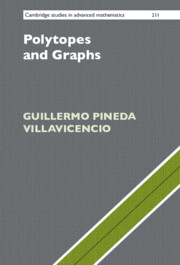6 - Decomposition
Published online by Cambridge University Press: 14 March 2024
Summary
Minkowski decomposability of polytopes is developed via geometric graphs and decomposing functions; recall, a geometric graph is a realisation in $\R^{d}$ of a graph $G$ where distinct vertices of $G$ correspond to distinct points in $\R^{d}$, edges in $G$ correspond to line segments, and no three vertices are collinear. One advantage of this approach is its versatility. The decomposability of polytopes reduces to the decomposability of geometric graphs, which are not necessarily polytopal. And the decomposability of geometric graphs often revolves around the existence of suitable subgraphs or useful properties in the graphs. Section 6.3 is devoted to the classification of polytopes with at most $2d+1$ vertices into composable and decomposable. The chapter concludes with an interlude on polytopes that admit both a decomposable realisation and an indecomposable realisation. It is one of the few places in the book where we deal with a noncombinatorial property. Whereas the combinatorial type of a polytope can have many distinct realisations, here we will be concerned with concrete realisations of the type and their properties.
Keywords
- Type
- Chapter
- Information
- Polytopes and Graphs , pp. 273 - 304Publisher: Cambridge University PressPrint publication year: 2024

